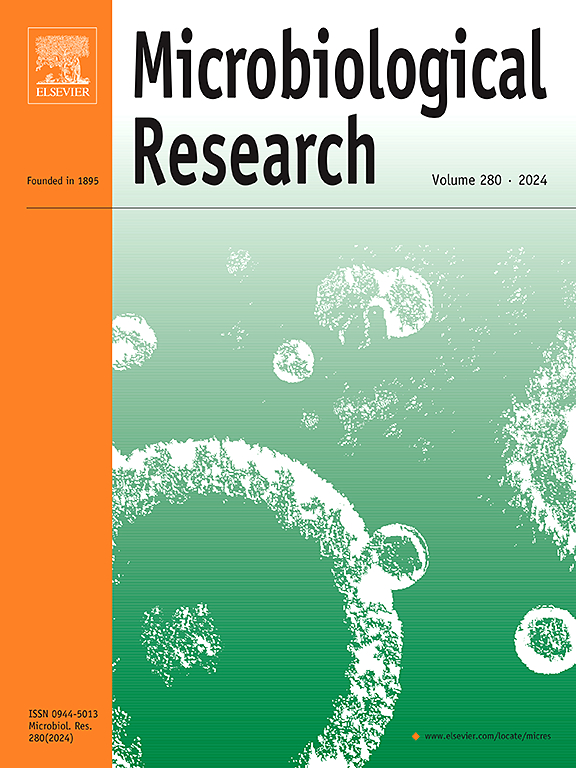ScRNA-seq揭示了训练有素的免疫激活Th17细胞对鱼腥藻诱发的肠道炎症的抑制作用
IF 6.9
1区 生物学
Q1 MICROBIOLOGY
引用次数: 0
摘要
粘膜免疫通常包括先天性免疫细胞和适应性免疫细胞,而远洋鱼类的肠道免疫细胞参与肠道平衡以抵御细菌感染的细胞机制在很大程度上仍然未知。利用大菱鲆肠道病原体(Edwardsiella piscicida)感染诱导的肠道炎症,我们发现β-葡聚糖训练可以减轻细菌感染诱导的肠道炎症。通过单细胞转录组分析和细胞功能分析,我们发现E. piscicida感染可抑制肠道Th17细胞的活化,而β-葡聚糖训练可保留放大和恢复肠道Th17细胞功能的潜力。此外,通过药理抑制剂处理,我们发现Th17细胞对改善细菌感染诱发的远洋鱼类肠道炎症至关重要。综上所述,这些结果表明,训练有素的免疫激活是调节肠道Th17细胞功能的一个新概念,它可能有助于更好地制定策略,维持肠道平衡,抵御细菌感染。本文章由计算机程序翻译,如有差异,请以英文原文为准。
ScRNA-seq reveals trained immunity-engaged Th17 cell activation against Edwardsiella piscicida-induced intestinal inflammation in teleost
Mucosal immunity typically involves innate and adaptive immune cells, while the cellular mechanism of teleost's intestinal immune cells that engages gut homeostasis against bacterial infection remains largely unknown. Taking advantage of the enteric fish pathogen (Edwardsiella piscicida) infection-induced intestinal inflammation in turbot (Scophthalmus maximus), we find that β-glucan training could mitigate the bacterial infection-induced intestinal inflammation. Through single-cell transcriptome profiling and cellular function analysis, we identify that E. piscicida infection could tune down the activation of intestinal Th17 cells, while β-glucan-training could preserve the potential to amplify and restore the function of intestinal Th17 cells. Moreover, through pharmacological inhibitor treatment, we identify that Th17 cells are essential for ameliorating bacterial infection-induced intestinal inflammation in teleost. Taken together, these results suggest a new concept of trained immunity activation to regulate the intestinal Th17 cells’ function, which might contribute to better developing strategies for maintaining gut homeostasis against bacterial infection.
求助全文
通过发布文献求助,成功后即可免费获取论文全文。
去求助
来源期刊

Microbiological research
生物-微生物学
CiteScore
10.90
自引率
6.00%
发文量
249
审稿时长
29 days
期刊介绍:
Microbiological Research is devoted to publishing reports on prokaryotic and eukaryotic microorganisms such as yeasts, fungi, bacteria, archaea, and protozoa. Research on interactions between pathogenic microorganisms and their environment or hosts are also covered.
 求助内容:
求助内容: 应助结果提醒方式:
应助结果提醒方式:


